Select a Category
- All News
- Announcement
- Nutrition
- Parenting
- Practitioners
- Mind
- Careers
- Lifestyle
- Visceral manipulation by Jean Pierre Barral
- Visceral manipulation Josh Neeft
- acupuncture
- Vagus Nerve Regulation
- Lymphatic Drainage Massage
- Skin Health
- BODY
- CranioSacral Therapy or CST
- ANATOMY IN MOTION
- The Home Medicine Cupboard
06/05/2024
Health on the inside
When it comes to restoring balance, digestive function is one of the keys to good health.
Here’s how to use the principles of Chinese medicine to improve digestion.
Chinese medicine sees the digestive system as central to the production of usable energy in our systems. Food as medicine is not a new concept – more than 60 per cent of our immune system originates in the gut, and the connection with the vagus nerve physically links mental and emotional stability with a healthy digestive system.
When it works we feel nourished, full of life and emotionally and physically satiated. When it doesn’t, we feel lethargic, irritable, inflamed and emotionally fragile, not to mention the physical symptoms of an irritated digestive system. Instead of shiny, clear hair, skin and nails, we might find these are brittle, dry, blemished and lacklustre.
As we head into the cooler months, let’s take a closer look at how to take better care of our digestion.
A few simple changes could mean the world of difference in getting more zest out of cooler days.
More than just eating the right foods, what we glean from our diet in terms of nutrients is determined by how well we process what we consume. As a Chinese medicine practitioner, I frequently meet patients who express frustration over the fact that they eat very well, yet have poor energy, can’t seem to shift weight, or have specific digestive concerns.
In the Chinese medicine approach to digestion, food needs to be warmed to body temperature before it can be processed and transported to where it is needed. Something cooked and warm is more nourishing than a cold or raw meal, especially if the digestive system is already compromised (as in the case of leaky gut or digestive disease).
When it comes to understanding this concept, I like to use the analogy of a pot on a stove. The pot and its contents are the digestive organs (stomach, spleen, intestines), while the burner represents the digestive ‘fire’ coming from the deepest level of energy in our systems, the kidney energy.
The vapour or steam produced from the pot becomes the usable energy, which is transported to the rest of the body to nourish vital organs and provide the kinetic energy to drive physical and visceral function.
In Chinese medicine we want the digestive energies to be warm and moist in order to reap the benefits of the foods and drinks we consume. Drinking cold beverages or eating ice-cream after a meal is the equivalent of throwing a wet blanket on your digestive fire. It slows the digestive process and over time can weaken digestive energy considerably.
In order to improve digestion, avoid cold and raw foods, even in the warmer months. Lightly steam vegetables before placing them on salads. Sip on room temperature or hot tea or water while you eat.
Balance is the most crucial component of healthy eating.
Anything too extreme can be detrimental, particularly when it comes to restrictive dietary regimes. In general, however, choose foods that are as close to whole as possible.
The less something has been processed or modified since leaving the earth/farm /garden the better!!
Eat in abundance fruits, vegetables, whole-grains and cereals, nuts, seeds and plenty of protein (either plant-based or from eggs, fish, chicken and lean meat depending on your dietary preference). Select produce that is in season – it’s likely to be fresher, less modified and more nutritious. Fruits and vegetables should make up at least half of your food consumption.
Limit processed and packaged food, trans-fats, refined sugar, caffeine and alcohol - sugar is inflammatory and can irritate the lining of the gastrointestinal tract, causing mucous production and inhibiting nutrient absorption.
Take the time to sit and enjoy your meal. Eating on the run can generate stress, meaning the sympathetic nervous system is activated (your body is in fight or flight mode) and you’re less likely to be able to adequately process what you take in.
Eat balanced, in season, mindfully and truly nourish yourself.



